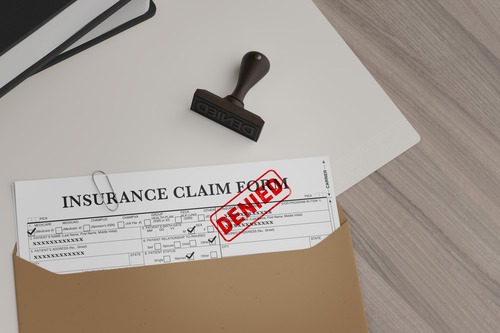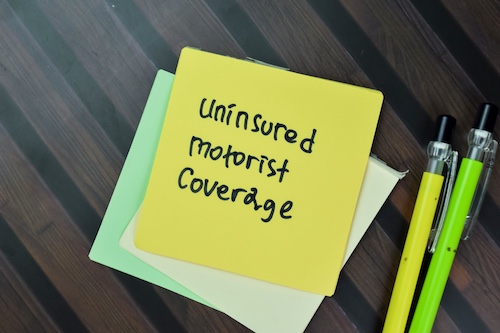When you’re in a car accident, the aftermath can be crazy, and one of the first things your auto insurance company will ask you to do is give a recorded statement to the insurance adjuster. While this may seem like a normal part of the claims process, giving a recorded statement can hurt your case and your settlement. Before you do, you should know the risks and why working with an Atlanta car accident attorney can help you.
In this post, we’ll discuss the risks of when you give a recorded statement to the insurance adjuster and how legal help can prevent costly mistakes.
What is a Recorded Statement?
A recorded statement is an audio or video of your version of what happened in an accident. Insurance companies use these statements to get information and evidence. They want to know the details of the incident, how it happened, and the extent of your injuries.
Recorded Statement Purpose
When you give a recorded statement you tell your side of the story in your own words. This helps the insurance adjuster understand the situation. But remember the insurance company’s goal is to limit their financial exposure. So they will use your recorded statement to challenge your claim or reduce the settlement they offer.
How a Recorded Statement Affects Your Claim
Recorded statements determine fault and damages. When you give a recorded statement, the details will impact how the insurance company sees the accident and your injuries. So you should know the risks of giving a recorded statement before you do. The information you provide can also influence how much compensation you receive for your injuries and damages.
Legal Rules for Giving a Recorded Statement
Knowing the legal rules surrounding recorded statements is important when you’re in the insurance claim process. Some specific rules and requirements vary depending on the type of claim you’re in.
First-Party vs. Third-Party Claims
First-party claims are your own insurance company, while third-party claims involve the other driver’s insurance company. If you’re claiming against your insurer they may require a recorded statement as part of the claims process. This is usually in your policy. If you’re dealing with the other party’s insurance there is no legal requirement to give a recorded statement. You should know these differences to protect yourself.
Policy Requirements with Your Own Insurance Company
When you sign an insurance policy you’re entering into a contract with your insurer. That contract may have clauses about providing information which can include giving a recorded statement. Not complying with these requirements can hurt your claim. But you can still talk to an attorney before making any statements to your insurer.
Legal Rights Regarding Recorded Statements
You have rights when it comes to recorded statements, especially with the other driver’s insurance company. You don’t have to give a recorded statement. If asked, you can decline or request an attorney be present during the conversation. Knowing your rights can make a big difference in how you handle these requests.
Risks of Giving a Recorded Statement
Giving a recorded statement to an insurance adjuster can be dangerous. Insurance companies want to pay out as little as possible and adjusters are trained to ask questions that will hurt you. It’s crucial to be cautious about how you describe how the accident occurred, as adjusters may exploit any confusion to undermine your claim.
Insurance Companies’ Goal: Minimize Payouts
Insurance companies are profit-driven. They want to keep costs low which means they pay out as little as possible for claims. That means pressure on you to give information that’s not in your favor. When the insurance company asks for a recorded statement, their primary goal is to minimize their financial exposure.
Adjuster Tactics
Adjusters will use various tactics to hurt your claim. They may ask leading questions or try to catch you off guard. This can result in you giving information that hurts your case unintentionally.
Pitfalls: Medical History and Inconsistencies
Your medical history and prior injuries can be used against you. If you mention past issues in a recorded statement adjusters will argue your current injuries are not as bad as you say. Any inconsistencies in your statement can be used against you so be careful.
How Recorded Statements Can Be Used Against You
Adjusters can use your recorded statement to challenge your credibility. Any deviation from your original story can be used against you. That’s why many experts advise against giving a recorded statement without an attorney.
Precautions When Dealing with Insurance Adjusters
Before you talk to an adjuster, take these precautions so you can protect yourself and your claim.
Talk to an Attorney First
Always talk to a car accident lawyer before giving any recorded statement. Attorneys know the ins and outs of insurance claims. They can tell you what to say and how to answer tricky questions. Having an attorney on your side will make the claims process easier for you. Many attorneys offer a free initial consultation to discuss your case and provide guidance.
Be Factual and Be Careful
When talking to insurance adjusters stick to the facts. Give them clear and concise information about the accident. Don’t speculate or guess about things you’re not sure of. Adjusters will use your words against you so be careful. If you feel pressured or unsure it’s okay to pause the conversation until you can talk to your attorney.
Alternatives to Giving a Recorded Statement
When an adjuster asks for you to give a recorded statement, you have options. You need to know how to handle this.
Polite Refusal: How to Decline a Recorded Statement Request
You can simply decline to give a recorded statement. Tell them you want to wait until you talk to an attorney. This shows you’re serious about your rights and sets a professional tone with the insurance company. Consider seeking a free consultation with an attorney to understand your options before making any statements.
Written Statement
Instead of a recorded statement give a written statement. This will give you time to think and articulate your situation. A written statement can be reviewed and edited before you submit it. Just make sure it’s factual and brief.
Consult With an Experienced Atlanta Car Accident Attorney Today!
If you’ve been involved in a car accident and are unsure whether to give a recorded statement to the insurance adjuster, don’t navigate the process alone; consult with a personal injury law firm. Protect your rights and maximize your compensation by consulting with an experienced attorney. At Atlanta Metro Law, our team understands the tactics insurance companies use and will guide you every step of the way.
Contact us for a free case consultation at 864-894-2045!





